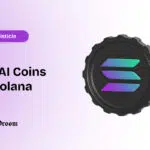The invention of Bitcoin, as a digital currency, revolutionized the traditional banking system. The popularity of Bitcoin revealed the potential of blockchain technology and its application in various industries. While Bitcoin is limited to cryptocurrency and its transactions, Ethereum introduced programmable blockchain through smart contracts, taking decentralization to the next level. Smart contract languages are programming languages that can be used to write smart contracts on blockchain.
Smart contracts are self-executing code, executed without human interference and with complete transparency. If you’re looking to become a Web3 developer, you need to know how to write smart contracts. There are multiple use cases of smart contracts today, from finance to gaming. Smart contracts can be written in any of the programming languages such as solidity, vyper, rust, and more.
This article explores smart contracts and the different types of smart contract languages used for writing smart contracts.
What is a Smart Contract?
The term smart contract was coined by Szabo defining it as computerized transaction protocols that execute the terms of the contract. They are self-executing codes that automate actions between two parties such as buyer and seller when a predefined condition is met, removing any third-party interference.
Smart contracts are an integral part of any applications on web3. Because smart contracts execute agreements and execute transactions on defined conditions, they can integrated into different industries so that there will be no need for a third person to monitor and act. For example, a builder needing materials can set payments using smart contracts, and the supplier can set up shipments. According to agreements that are defined between these parties, funds can be transferred automatically to the supplier after delivering materials to the builder.
Top Programming Languages for Smart Contracts

Solidity
Solidity is the most popular smart contract language that have a large community support over millions of developers. It is a high-level programming language that supports struct, libraries, and different variables, with syntax similar to Javascript, Python, and C++.
It is the core smart contract language that is used to build smart contracts on the Ethereum blockchain. Solidity runs on Ethereum Virtual machine (EVM) and EVM-compatible chains.
Cairo
Cairo is rust inspired programming language that lets you write provable programs without requiring a deep understanding of the underlying ZK concepts. From on-chain gaming to provable ML, Cairo makes building trustless applications possible. Cairo is also the smart contract language of Starknet, an L2 blockchain that is verified over Ethereum.
Rust
Rust is a general-purpose language that’s gaining popularity for smart contract development. It’s known for its efficiency and memory safety features. Its powerful features make it well-suited for building robust, efficient, and secure decentralized applications.
Vyper
Vyper is a contract-oriented, Pythonic programming language that targets the Ethereum Virtual Machine (EVM). It prioritizes user safety and encourages clear coding practices via language design and efficient execution.
Arbitrum Stylus: Future of Smart Contract Programming
For web3 to expand, we need more developers to build innovative applications and protocols on-chain. Most web3 applications now are developed by developers who are familiar with dedicated smart contract languages like Solidity or Go lang. By using programming languages that are popularly used in the web2 world in smart contracts, we could onboard many developers to web3.
Arbitrum introduces a virtual machine that supports Web Assembly (WASM) that works along with Ethereum Virtual machine(EVM). Stylus allows developers to write smart contracts in Rust, C, C++, and any other programming language that compiles to WASM.
Conclusion
Smart contracts are back backbone of web3 applications eliminating intermediaries or third parties and offering transparency and trust. It automatically executes the logic and agreements based on pre-defined conditions. To onboard more developers into the web3 ecosystem innovations like the Arbitrum stylus let developers build and write smart contracts in their preferred language. Smart contracts are indeed a secure way for payments and transactions replacing traditional methods and creating a more efficient system.




















